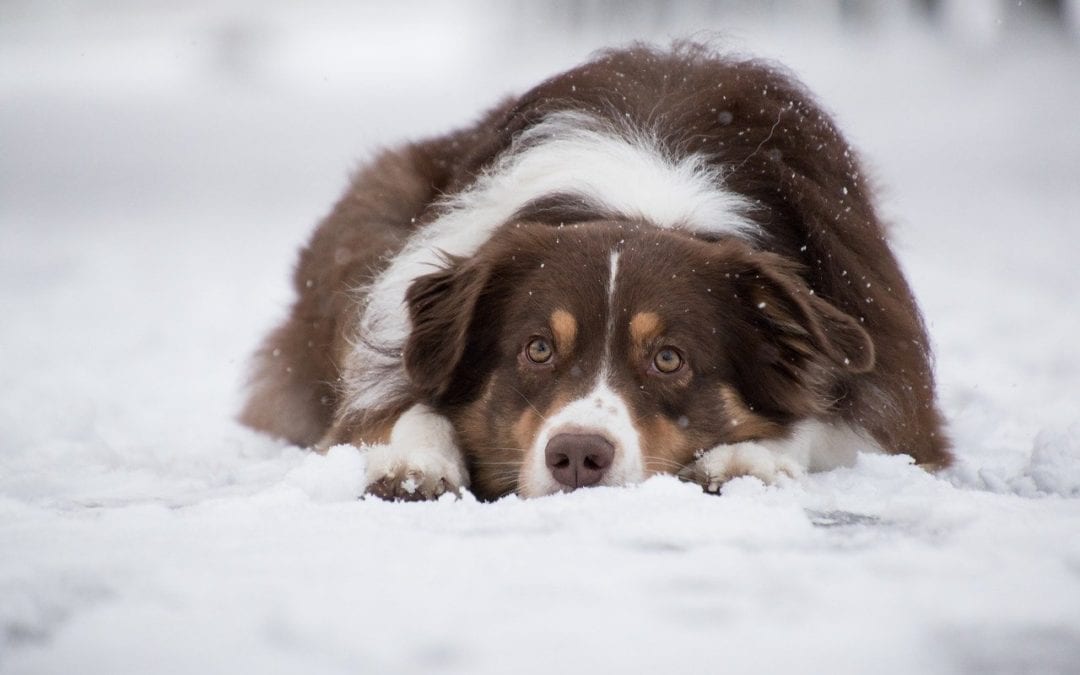As winter settles its icy grip across the country, your poor pet may be chilled by an unexpected wintry blast. Despite their fur coat, pets are as susceptible to cold and snow as people, and can quickly succumb to frostbite, hypothermia, and other winter-related conditions. Our team at Elon Oaks Veterinary Hospital wants you to follow these three tips to help protect your four-legged friend from the dangers of cold and snow.
#1: Gear up for outdoor walks with your pet
Although you may not want to head outside, your dog needs plenty of exercise in the winter, despite frigid temperatures. Keep your furry pal safe from icy conditions by bundling them up in a waterproof jacket and booties to protect them from ice, snow, freezing rain, and chemicals. Your pet may take time to accept protective booties, but properly fitted footwear can prevent cuts, frostbite, and chemical contact. When you return indoors, dry your pet thoroughly, and remove all traces of snow, ice, and ice-melting chemicals from their fur.
#2: Ensure your pet’s bed is away from chilly drafts
Cold breezes can waft into your home through opened doors, poorly insulated areas, or drafty windows, chilling your pet to the bone. If their bed is usually next to a door or window, move it to a warmer location, especially for senior pets with achy joints. Be cautious about placing your pet’s bed near a fireplace or heater, as your pet can overheat or be burned if they venture too close.
#3: Keep antifreeze and ice melt out of your pet’s reach
Pets easily get into mischief with household chemicals that are not properly stored or used, and antifreeze and sidewalk salt can be as tempting. Rather than using ethylene glycol, switch to propylene glycol for your car, and search for pet-friendly ice-melt options to avoid toxin ingestion.
If your furry pal stumbles across a cold-weather mishap, count on our team to care for your frosty pet. Give us a call for help.

